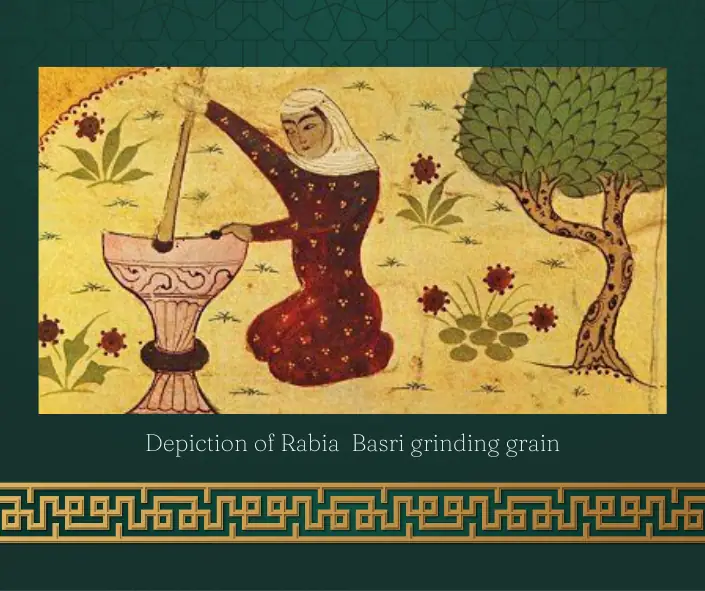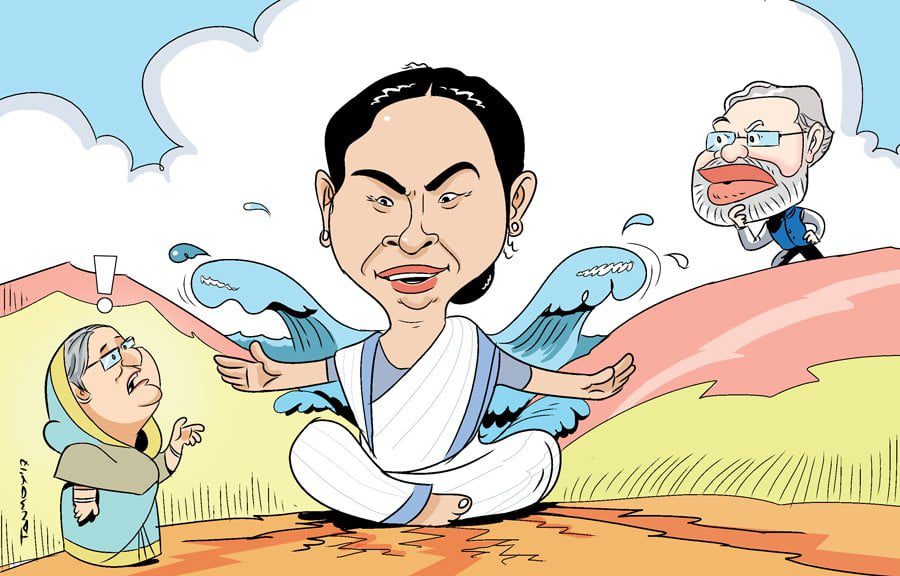Throughout history, Muslim women have played a significant role in shaping the Islamic world and the world at large. From politicians to scholars, artists to activists, Muslim women have made remarkable contributions to society in various fields. In this article, we will explore some of the most famous Muslim women in history and their contributions.
Famous Muslim women who shaped history
Khadijah bint Khuwaylid
(555-619 CE)
Khadijah bint Khuwaylid was the first wife of the Prophet Muhammad (peace be upon him) and one of the wealthiest merchants in Makkah. She was a strong supporter of her husband’s mission and played a significant role in the early development of Islam. Khadijah was known for her intelligence, business acumen, and her unwavering commitment to social justice. She was also the mother of four daughters and two sons, including Fatimah, who is considered a role model for Muslim women.
Aisha bint Abu Bakr
(614-678 CE)
Aisha bint Abu Bakr was the youngest wife of the Prophet Muhammad (peace be upon him) and one of the most prominent scholars in Islamic history. She is known for her extensive knowledge of Islamic law and hadith, which she transmitted to future generations. Aisha was also a political leader and played a crucial role in the early Islamic community. She was known for her intelligence, wit, and strong personality.
Rabi’a al-Adawiyya
(717-801 CE)
Rabi’a al-Adawiyya was a Sufi saint and one of the most celebrated female mystics in Islamic history. She is known for her devotion to God and her teachings on divine love. Rabi’a rejected the traditional religious hierarchy and emphasized the importance of the direct experience of God. Her poetry and teachings continue to inspire Muslims and non-Muslims alike.
Fatimah bint Muhammad
(605-632 CE)
Fatimah bint Muhammad was the youngest daughter of the Prophet Muhammad (peace be upon him) and his wife Khadijah. She is considered a role model for Muslim women and is known for her piety, courage, and dedication to her family. Fatimah was also a wife and mother, and her descendants are highly respected in the Islamic world. She played a significant role in the early development of Islam and is considered one of the most important figures in Islamic history.
Zainab bint Ali
(626-682 CE)
Zainab bint Ali was the daughter of Imam Ali and Fatimah, and the sister of Imam Hasan and Imam Hussain. She is known for her courage and eloquence, particularly during the events of Karbala. Zainab played a significant role in keeping the memory of Karbala alive and spreading the message of social justice and resistance. Her speeches and sermons continue to inspire Muslims today.
Fatima al-Fihri
(800-880 AD)
Fatima al-Fihri is a famous Muslim woman in history from Tunisia who founded the world’s oldest continually operating university, the University of al-Qarawiyyin, in Fez, Morocco. The university was established in 859 AD, and it is still open and operating today. Fatima al-Fihri is considered a pioneer in the field of education, and her legacy continues to inspire Muslim women around the world.
Lubna of Cordoba
(d. 984)
Lubna of Cordoba is a famous Muslim woman in history who lived in 10th-century Andalusia, Spain. She was born in Cordoba, a center of Islamic scholarship and culture, and became one of the most renowned intellectuals of her time.
Lubna began her career as a scribe, working in the service of the Umayyad caliphs who ruled over Andalusia. She quickly gained a reputation for her exceptional skills in calligraphy, literature, and poetry, and was soon appointed as the personal secretary of Caliph Abd al-Rahman III.
In her role as secretary, Lubna became one of the most important advisors to the caliph, providing counsel on matters of state and diplomacy. She corresponded with rulers and intellectuals from across the Islamic world, and her letters and writings were widely admired for their eloquence and erudition.
Lubna was also a patron of the arts, and she played an important role in promoting the development of Andalusian literature and poetry. She was known to sponsor poets and writers, and her own poetry was celebrated for its beauty and elegance.
Despite her accomplishments, Lubna’s legacy has been largely forgotten over time. However, her life and achievements serve as a testament to the contributions of Muslim women to the fields of scholarship, literature, and diplomacy. Her story is a reminder of the important role that women have played throughout history, and a source of inspiration for generations of women who seek to make their mark on the world.
Gulbadan Begum
(1523-1603)
Gulbadan Begum was a Mughal princess and memoirist who lived in the 16th century. She was the daughter of Emperor Babur, the founder of the Mughal Empire, and the sister of Emperor Humayun. Gulbadan Begum is best known for her memoir, “Humayun Nama,” which is one of the most important historical sources on the early Mughal period.
In her memoir, Gulbadan Begum provides a unique perspective on the lives of the Mughal emperors, particularly her brother Humayun. She describes their childhood, the family’s struggles and victories, and the challenges they faced as they fought to establish and maintain their rule in India. Her vivid descriptions of court life, cultural practices, and political events offer a glimpse into the Mughal Empire’s golden age.
Gulbadan Begum was also known for her piety and devotion to Islam. She made a pilgrimage to Mecca in 1581, and her memoir includes descriptions of her religious experiences and the religious practices of the Mughal court.
Gulbadan Begum’s “Humayun Nama” is a valuable historical document that provides insight into the Mughal Empire’s early years. It is also a testament to the power of women’s voices in shaping history. Gulbadan Begum’s unique perspective and powerful storytelling have made her an important figure in Mughal history and a role model for generations of women.
Kösem Sultan
( 1590- 1651)
Kösem Sultan was one of the most influential Muslim women in Ottoman history. She was born in 1590 in Tinos, Greece, and was originally named Anastasia. She was captured by Ottoman soldiers during a raid and was brought to Istanbul, where she was presented as a gift to Sultan Ahmed I. Ahmed I was captivated by her beauty and intelligence and soon made her his concubine. She became pregnant with his son and eventually became one of his wives.
After Ahmed I’s death in 1617, Kösem Sultan became the mother of the new sultan, Murad IV. She played an important role in the early years of his reign, acting as his regent until he reached the age of majority. Under her guidance, Murad IV carried out important reforms in the Ottoman Empire, such as limiting the power of the Janissaries, imposing strict laws on alcohol and gambling, and cracking down on corruption.
After Murad IV’s death in 1640, Kösem Sultan became the queen mother, as her other son, Ibrahim I, ascended to the throne. However, Ibrahim I was not a strong leader, and Kösem Sultan once again acted as regent, this time for her grandson Mehmed IV. During this period, she continued to wield great influence and was involved in important decision-making processes.
Kösem Sultan’s reign as regent came to an end in 1651 when her own son, Mehmed IV, came of age and took over the reins of power. However, her influence did not wane, and she continued to advise her son until her death in 1651. Her legacy lived on, as her son continued many of the reforms she had initiated during her regency.
Kösem Sultan is a famous Muslim woman in history who wielded great power and influence in the Ottoman Empire. She was known for her intelligence, beauty, and political acumen. Her legacy as a strong and influential woman in Ottoman history continues to inspire women around the world today.
Nana Asma’u
(1793-1864 CE)
Nana Asma’u was a princess, scholar, and poet from the Sokoto Caliphate in what is now Nigeria. She is known for her contributions to Islamic education and her efforts to empower Muslim women. Nana Asma’u wrote poetry and literature in Arabic, Fulfulde, and Hausa, and established a network of female teachers known as jajis. She is considered a pioneer of women’s education in West Africa.
Begum Rokeya Sakhawat Hossain
(1880-1932 CE)
Begum Rokeya Sakhawat Hossain was a feminist writer and social activist from what is now Bangladesh. She is known for her advocacy for women’s rights and education, particularly for Muslim women. Begum Rokeya founded the first school for Muslim girls in East Bengal and wrote several books on women’s education and empowerment. She was also an advocate for interfaith harmony and worked towards bridging the gap between Hindus and Muslims in her community.
Shirin Ebadi
(1947-Present)
Shirin Ebadi is an Iranian lawyer, human rights activist, and Nobel Peace Prize laureate. She is known for her advocacy for human rights, especially women’s rights, in Iran and the Middle East. Shirin was the first woman to become a judge in Iran, but she was dismissed from her position after the Islamic Revolution in 1979. She continued to work as a lawyer and advocate for human rights, founding the Defenders of Human Rights Center in Iran. She has also written several books on human rights and women’s rights.
Malala Yousafzai
(1997-Present)
Malala Yousafzai is a Pakistani activist and the youngest Nobel Prize laureate. She is known for her advocacy for girls’ education and her bravery in the face of Taliban oppression. Malala was shot by the Taliban in 2012 for speaking out against their ban on girls’ education, but she survived and continued to advocate for education and women’s rights. She founded the Malala Fund, which advocates for girls’ education around the world, and continues to inspire millions of people with her message of peace and equality.
Tawakkol Karman
(1979-Present)
Tawakkol Karman is one of the most famous Muslim women at present. is a Yemeni journalist, activist, and Nobel Peace Prize laureate. She is known for her advocacy for human rights, democracy, and women’s rights in Yemen and the Arab world. Tawakkol co-founded Women Journalists Without Chains, an organization that advocates for press freedom and women’s rights in Yemen. She played a significant role in the Yemeni revolution of 2011, and her leadership and activism have inspired many women in the region.
Ilhan Omar
(1982-Present)
Ilhan Omar is an American politician and the first Somali-American woman to serve in the United States Congress. She is known for her progressive politics and her advocacy for social justice, including women’s rights and immigrant rights. Ilhan has been a vocal critic of the Trump administration’s policies on immigration and has worked to pass legislation to protect immigrant families. She is a role model for Muslim women in the United States and around the world.
Summary of ‘Most famous Muslim women in history’
In conclusion, Muslim women have made significant contributions to history and society, often in the face of oppression and marginalization. From the early days of Islam to the present day, Muslim women have played a crucial role in shaping the world we live in. Their contributions in various fields, including politics, scholarship, activism, and art, have left a lasting impact on society and continue to inspire future generations.








